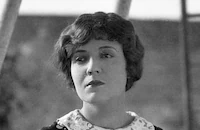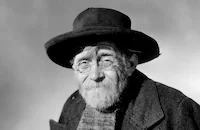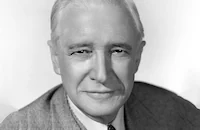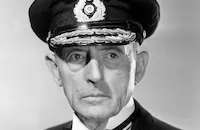No Greater Glory

Brief Synopsis
Cast & Crew
Frank Borzage
George Breakston
Frankie Darro
Jackie Searl
Jimmie Butler
Donald Haines
Film Details
Technical Specs

Synopsis
At a German military hospital, a wounded soldier cries out against the false honor of war. His words are drowned out by a schoolteacher telling his youthful class that there is no greater glory than dying for one's country. After class, the schoolteacher chastises a group of boys for passing notes. Boka, the leader of the boys, tells his teacher that they are "The Paul Street Boys" and another gang of older boys, "The Red Shirts," have been invading their playground, which is an abandoned lumber yard. The schoolteacher orders the boys to break up the gang, but later that very afternoon they elect Boka their president in a landslide victory over another boy, Gereb. Nemecsek, the smallest boy in the gang, complains that he is the only one that is not an officer, but Boka tells him that all armies need privates and he is theirs. As the boys perform in true military fashion, the watchman, a war veteran missing his left arm, watches over them. Later, as Nemecsek and some of the other boys play marbles under a bridge, Feri Ats, the leader of The Red Shirts, arrives and takes their marbles away. Back at the playground, Gereb acts the traitor by letting Feri Ats into the lumber yard, where he takes their flag as a terrified Nemecsek watches helplessly. Boka decides that they must recapture their flag "or die trying" that night at The Red Shirts meeting place, the botanical gardens. Nemecsek volunteers for the mission, hoping that he may somehow distinguish himself and become an officer. Boka, Nemecsek and Csonakos sneak into the gardens, only to discover the traitor Gereb meeting with their rival gang. In their unsuccessful attempt to re-capture their flag, Nemecsek gets wet when he falls into the lake, then is forced to hide in a pond inside a greenhouse once they are discovered. After returning home that night during a thunderstorm, Nemecsek develops a severe cold. His parents insist that he stay home, but he sneaks out. That night at the botanical gardens, Gereb tells Feri Ats that he has bribed the watchman to throw The Paul Street Boys off the lumber yard and let The Red Shirts move in. Feri Ats, a boy of great honor, calls Gereb a coward and insists that the playground be won in open battle. The gang then discovers their captured flag missing, only to have Nemecsek fall out of a tree with it. Nemecsek shows great bravery in standing up to the gang, so much so that the impressed Feri Ats offers to let him join their gang. Nemecsek refuses, stating that he, unlike Gereb, is not a traitor. Rather than beating him, Nemecsek is punished by being dunked once more in the lake, but as he leaves, the impressed Feri Ats orders his gang to salute the small boy. The next day, Boka and the gang prepare to defend their "land." Gereb returns and asks to be taken back into the gang, but he is initially refused. The next day, Nemecsek is deathly sick in bed. A doctor is called, and he tells Nemecsek's father that his son may die. Boka comes to visit and brings with him an army cap, as Nemecsek has finally received his "commission." Boka tells the boy that Gereb has been accepted back into the gang as a private, and that the two gangs are to do battle that afternoon and whoever retains The Paul Street Boys flag at the end of the battle wins the playground. With great military ceremony, the two gangs prepare for battle, including sending honor guards to each other and the ill Nemecsek. Delirious, Nemecsek sneaks out of his bed to join his comrades in the battle. The "war" begins, with Boka's battle tactics working to perfection, but Feri Ats, because of his greater strength, still holds the flag as the end nears. The battle stops when Nemecsek enters the playground. When he sees Feri Ats with the flag, he jumps on the older boy and dies with the flag in his hand. Boka, Feri Ats and the other boys escort Nemecsek's mother as she carries her dead son home. The next day, the two gangs watch The Paul Street Boys flag being raised once more over the playground, as bulldozers roll in. The watchman states that their battle has all been in vain, as the lumber yard is being converted into an apartment building.

Director

Frank Borzage
Cast
George Breakston

Frankie Darro
Jackie Searl
Jimmie Butler
Donald Haines

Lois Wilson

Christian Rub

Samuel Hinds

Ralph Morgan
Egon Brecher
Rolf Ernest
Wesley Giraud
Julius Molnar
Bruce Line
Beaudine Anderson

Frank Reicher
Harvey Clark
Tom Ricketts
Howard Leeds
Basil Bookasta
Robert Wagner
Eddie Buzzard
Douglas Greer
Crew

Videos
Movie Clip


Film Details
Technical Specs

Articles
No Greater Glory (1934)
Although it predates the war, Molnár's novel already functions as an allegory on nationalism; the boys are fiercely attached a lumber yard which they use as a playground, calling it their "Grund." The novel also reflects the pervasiveness of military culture in Hungarian society under the Austro-Hungarian Empire. In his 1950 autobiography entitled Companions in Exile, Molnár wrote that his secretary Wanda Bartha recalled how he "spent evening after evening writing his novel The Paul Street Boys in a Budapest cafe, to the constant accompaniment of a military band that was playing an engagement there."
Born in Budapest as Ferenc Neumann, Molnár (1878-1952) achieved fame mainly as a playwright. His best-known work is probably Liliom (1909), which has been adapted multiple times, most famously the 1930 version by Borzage, a 1934 French version directed by Fritz Lang, and the musical Carousel by Rodgers and Hammerstein. Other noteworthy plays by Molnár include The Guardsman (1910), The Swan (1920), The Play at the Castle (1926) and The Good Fairy (1930), all of which have been translated into English and widely staged. In 1939 Molnár emigrated to the U.S. in order to escape rising anti-Semitism within Hungary. He remained in the U.S. until his death.
Since the mid-1920s Borzage was one of the leading directors at Fox, though in February 1931 he and Cecil B. DeMille, Lewis Milestone and King Vidor co-founded a company called Hollywood Screen Guild. That venture would fail a few years later, but in the meantime Borzage did get Harry Cohn to agree to house his personal production company at Columbia Pictures for a 2-film contract. Man's Castle (1933), the first film in the contract, was heavily cut by the censors and failed at the box office, though it is now commonly regarded as a classic with outstanding performances by Spencer Tracy and Loretta Young.
No Greater Glory offered an entirely different challenge: finding a cast of child actors who could play the unusually complex roles. A June 1934 article in the Los Angeles Times stated that Borzage, the casting director and the assistant casting director interviewed "practically every child motion-picture player in Hollywood." Borzage did not find any suitable child for Nemecsek until he came across George Breakston. Although it was Breakston's first film role, he had performed previously on radio. Breakston (1920-1973) later played Pip in the Stuart Walker adaptation of Great Expectations (1934) and made several appearances as Francis Bacon "Beezy" Anderson in the Andy Hardy films. Beginning in the late 1940s, he began to direct low-budget action films such as Urubu (1948), Jungle Stampede (1950) and Oriental Evil (1951). However, his most notorious film is no doubt The Manster (1959).
When No Greater Glory was released in May 1934, it earned mostly positive reviews. Mordaunt Hall of the New York Times wrote that it was "rather too sentimental at times, but, nevertheless, compelling because of its vitality and the good work of the boys who portray the leading roles." He especially liked George Breakston as Nemecsek. Philip Scheuer of the Los Angeles Times wrote that the film "comes mighty close to being a classic" because of its "extraordinary singleness of purpose." He singled out for praise the performances of the boys and Ralph Morgan and Lois Wilson as Nemecsek's parents. No Greater Glory was also listed among the "Ten Best American Films" of 1934 by the National Board of Review. Like Man's Castle, the film was not a great box office success; it was both the last film that Hollywood Screen Guild produced and Borzage's last film for Columbia.
The film's reception in Europe was an entirely different matter. As Dumont notes, it was alternately interpreted as a left-wing or right-wing ideological statement. According to a December 1934 article in the New York Times, the film was banned in France on the vague pretext of being "inopportune," most likely because of its anti-war message. At the 1935 Venice Biennale, it was awarded the Cup of the National Fascist Party for "the most artistically successful foreign film." Borzage later recalled, "That was a strange thing. It was an indictment against war... and got a citation from Mussolini!"
Director/Producer: Frank Borzage
Screenplay: Jo Swerling, based on the novel The Paul Street Boys (1907) by Ferenc Molnár
Director of Photography: Joseph H. August
Art Direction: Stephen Goosson
Film Editor: Viola Lawrence
Musical Score: Louis Silvers
Sound: Glenn Rominger
Principal Cast: George Breakston (Ernő Nemecsek); Jimmy Butler (Boka); Jackie Searl (Geréb); Frankie Darro (Feri Áts); Donald Haines (Csónakos); Rolf Ernest (Ferdie Pasztor); Julius Molnar (Henry Pasztor); Wesley Giraud (Kolnay); Beaudine Anderson (Csele); Bruce Line (Richter); Samuel S. Hinds (Geréb's Father); Ralph Morgan (Andros Nemecsek); Lois Wilson (Mrs. Nemecsek); Egon Brecher (Racz); Frank Reicher (Doctor); Tom Ricketts (Janitor); Christian Rub (Guardian).
by James Steffen

No Greater Glory (1934)
Quotes
Trivia
Notes
The working titles for this film were The Paul Street Boys, Men of Tomorrow and No Cannons Roar. According to Variety, Columbia probably choose to produce this film on the advise of filmmaker Ernst Lubitsch. According to New York Times, this was actor George Breakston's first film. Film Daily gives the running time as 117 min., probably in error. Columbia reissued this film in 1938 and 1944. The Ferenc Molnar work has been filmed numerous times, including the 1929 Hungarian production The Paul Street Boys, starring Laazlo Gyarles and Geza Berczy, and produced by Bela Balogh, and a 1969 Hungarian production entitled The Boys of Paul Street, starring Anthony Kemp and William Burleigh, and directed by Zoltan Fabr.

Miscellaneous Notes
Released in United States 1934
Released in United States 1934
Released in United States 1997
Released in United States 1997 (Shown in New York City (Walter Reade) as part of program "American Romantics: Frank Borzage and Margaret Sullavan" August 22 - September 16, 1997.)













